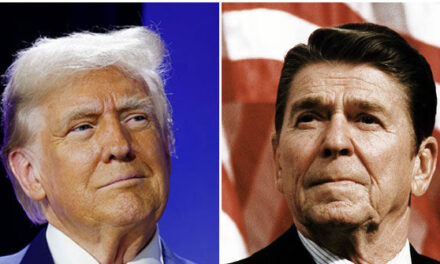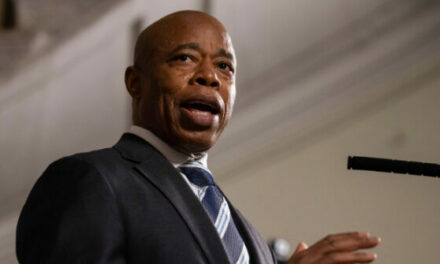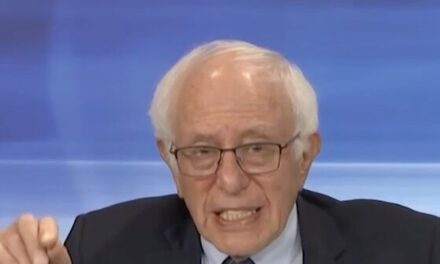We support our Publishers and Content Creators. You can view this story on their website by CLICKING HERE.

Australian Prime Minister Anthony Albanese said on Thursday that his government will implement a “world-leading” ban on social media for children under the age of 16.
If the initiative proceeds according to Albanese’s timetable, the ban will take effect in late 2025.
“Social media is doing harm to our kids and I’m calling time on it,” Albanese said at a press conference on Thursday.
“I’ve spoken to thousands of parents, grandparents, aunties and uncles. They, like me, are worried sick about the safety of our kids online, and I want Australian parents and families to know that the government has your back,” he said.
Albanese pointed to the risks posed by social media to the mental and physical health of children.
“If you’re a 14-year-old kid getting this stuff, at a time where you’re going through life’s changes and maturing, it can be a really difficult time and what we’re doing is listening and then acting,” he said.
Albanese was a bit vague on the details of exactly how the ban would work, but he said the “onus will be on social media platforms to demonstrate they are taking reasonable steps to prevent access.”
The prime minister stated the ban would include no “grandfathering” provisions for young people who already have social media accounts, so when the ban goes into effect, all of their accounts will be shut down at once.
Albanese’s communications minister Michelle Rowland said the government has been in communication with platforms such as Instagram, TikTok, Facebook, X, and YouTube to discuss how the ban on young people will be implemented.
“What we are announcing here and what we will legislate will be truly world leading,” Rowland said.
Opposition Liberal Party leader Peter Dutton agreed with the ban, and opposition spokesman David Coleman said he only hopes “the legislation is strong and that there aren’t loopholes and that this really protects Australian kids and captures those platforms that we are also concerned about.”
Australia’s state and territorial governments unanimously indicated their support for the ban on Friday. Some states, such as Tasmania, wanted to use a lower age cutoff of 14, but were prepared to support the 16-year age limit to create a uniform national standard.
On the other hand, a coalition of over 140 international groups sent Albanese an open letter last month arguing that a total ban would be “too blunt an instrument to address risks effectively.”
Among other objections, the group argued that implementing a ban effectively would be a “challenge,” and it would make social media even riskier for young people who manage to evade the ban, because platforms would have no incentive to provide child safety features any longer.
“The online world is a place where children and young people access information, build social and technical skills, connect with family and friends, learn about the world around them and relax and play. These opportunities are important for children, advancing children’s rights and strengthening development and the transition to adulthood,” the letter said.
The Digital Industry Group (DIGI), a coalition that includes X, Google, and Facebook’s parent company Meta, said the Australian ban would only encourage children to delve deeper into the forbidden recesses of the Internet.
“Keeping young people safe online is a top priority … but the proposed ban for teenagers to access digital platforms is a 20th Century response to 21st Century challenges,” said DIGI Managing Director Sunity Bose.
“Rather than blocking access through bans, we need to take a balanced approach to create age-appropriate spaces, build digital literacy and protect young people from online harm,” she said.
France has a somewhat similar social media ban, but the cutoff age is 15 rather than 16 and children can still use social media with parental consent. French President Emmanuel Macron said in April that he would like to see the entire European Union (EU) adopt the French rules.
“Does anyone send their child into the jungle at 5, 10, or 12? Today, for several hours a day, we open the door to the jungle,” Macron said.
In the United States, Senators Ted Cruz (R-TX) and Brian Schatz (D-HI) introduced a bill in May called the “Kids Off Social Media Act” that would set a minimum age of 13 for using social media platforms. The bill would also bar social media companies from using algorithms to feed content to users under the age of 17 and restrict access to social media platforms at schools.
“Every parent with a young child or a teenager either worries about, or knows first-hand, the real harms and dangers of addictive and anxiety-inducing social media. Parents know there’s no good reason for a child to be doom-scrolling or binge-watching reels that glorify unhealthy lifestyles,” Sen. Cruz said when introducing the bill.
“Young students should have their eyes on the board, not their phones,” Cruz said of his proposal to ban social media from schools.
“There is no good reason for a nine-year-old to be on Instagram or TikTok. There just isn’t. The growing evidence is clear: social media is making kids more depressed, more anxious, and more suicidal. This is an urgent health crisis, and Congress must act,” said Sen. Schatz.

 Conservative
Conservative  Search
Search Trending
Trending Current News
Current News 







